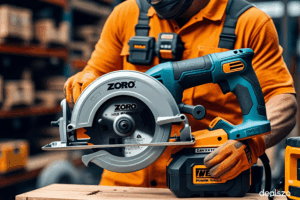A leaking shower tap is one of the most common plumbing issues homeowners face. Not only does it lead to wasted water, but it can also increase your utility bills and potentially cause water damage over time. Understanding the causes of a leaking shower tap and knowing how to fix it quickly can help prevent these problems. In this blog, we will explore the top causes of leaking shower taps and provide practical solutions to address them.
1. Worn-out Washer or O-ring
One of the most common reasons for a leaking shower tap is a worn-out washer or O-ring. These small rubber components are responsible for creating a tight seal when the tap is turned off. Over time, washers and O-rings can deteriorate due to constant use, high water pressure, or exposure to harsh water conditions. Once they wear down, they fail to create a proper seal, resulting in water leakage.
How to Fix:
To fix this issue, you’ll need to replace the washer or O-ring. Here’s how:
- Turn off the water supply to the shower to avoid any accidents.
- Use a wrench to remove the tap handle and unscrew the valve stem.
- Inspect the washer or O-ring for signs of wear and replace it with a new one.
- Reassemble the tap and turn the water back on. Check if the leak has stopped.
If you’re unsure about the process or don’t have the right parts, it’s advisable to call a plumber.
2. Corroded or Damaged Valve Seat
The valve seat connects the faucet to the spout, and it plays a critical role in regulating the flow of water. If it becomes corroded or damaged, it can cause water to leak around the base of the faucet. Corrosion typically happens due to hard water, which contains high levels of minerals that accumulate over time.
How to Fix:
- Turn off the water supply and remove the handle and valve stem as described in the previous step.
- Inspect the valve seat for signs of corrosion or damage.
- If the corrosion is minor, you can clean the valve seat using a mixture of vinegar and water. For more severe damage, you may need to replace the valve seat.
- Reassemble the faucet and test the water flow to ensure the leak has stopped.
3. Faulty Cartridge
Modern shower taps often use a cartridge to control water flow and temperature. If the cartridge is faulty or damaged, it can cause a leak. A malfunctioning cartridge may fail to fully close the tap, causing a constant drip or a steady stream of water from the showerhead.
How to Fix:
- Turn off the water supply to your shower.
- Remove the shower handle and unscrew the cartridge from the valve body.
- Inspect the cartridge for cracks, wear, or mineral buildup.
- If the cartridge is damaged, take it to a hardware store to find an exact replacement.
- Install the new cartridge and reassemble the faucet.
This fix may require some technical knowledge, so if you are not confident, it’s best to consult a professional plumber.
4. High Water Pressure
High water pressure can put a strain on your shower taps and cause leaks. When the pressure is too high, it can force water through seals and joints, leading to leaks around the tap or showerhead. In some cases, high water pressure can also damage the valve seat or washer, leading to further leaks.
How to Fix:
- First, check your home’s water pressure using a pressure gauge. The ideal water pressure for most homes is between 40 and 60 psi (pounds per square inch).
- If your water pressure is too high, consider installing a pressure-reducing valve to bring it down to a safer level.
- If you’re unsure how to adjust the water pressure, a licensed plumber can help you install a pressure regulator.
5. Loose Faucet Handle or Connections
Sometimes, Leaking Shower Taps may be caused by a loose faucet handle or other connections. Over time, the screws holding the handle or other components may become loose, allowing water to leak from around the faucet.
How to Fix:
- Tighten any loose screws or bolts on the faucet handle and the surrounding connections.
- If the handle is cracked or damaged, it may need to be replaced.
6. Damaged Showerhead or Hose
While the tap itself may be in perfect working condition, sometimes the leak is caused by a faulty showerhead or hose. Cracks, mineral buildup, or general wear and tear can cause water to leak from the showerhead or hose, especially if the water pressure is high.
How to Fix:
- Inspect the showerhead for cracks, mineral deposits, or signs of damage. Clean the showerhead using vinegar to remove any buildup.
- If the showerhead is damaged, replace it with a new one.
- Check the hose for leaks or cracks. If the hose is damaged, replace it with a new one.
7. Incorrect Installation
In some cases, the cause of the leaking shower tap is simply improper installation. If the tap is not installed correctly or the wrong type of tap is used, it can lead to water leaks. This can also happen if the connections are not properly sealed during installation.
How to Fix:
- If you suspect the leak is due to incorrect installation, it’s best to call a professional plumber to inspect and reinstall the tap correctly.
Conclusion
Leaking Shower Taps can be a nuisance, but it’s not a problem that’s hard to fix. Whether the cause is a worn-out washer, a faulty cartridge, or high water pressure, identifying the issue early and addressing it promptly can save you time, water, and money. If you’re not comfortable with DIY plumbing, it’s always a good idea to call in a professional to ensure the job is done correctly.
By addressing these common causes of shower tap leaks, you can enjoy a fully functional shower without worrying about wasting water or increasing your utility bills.






